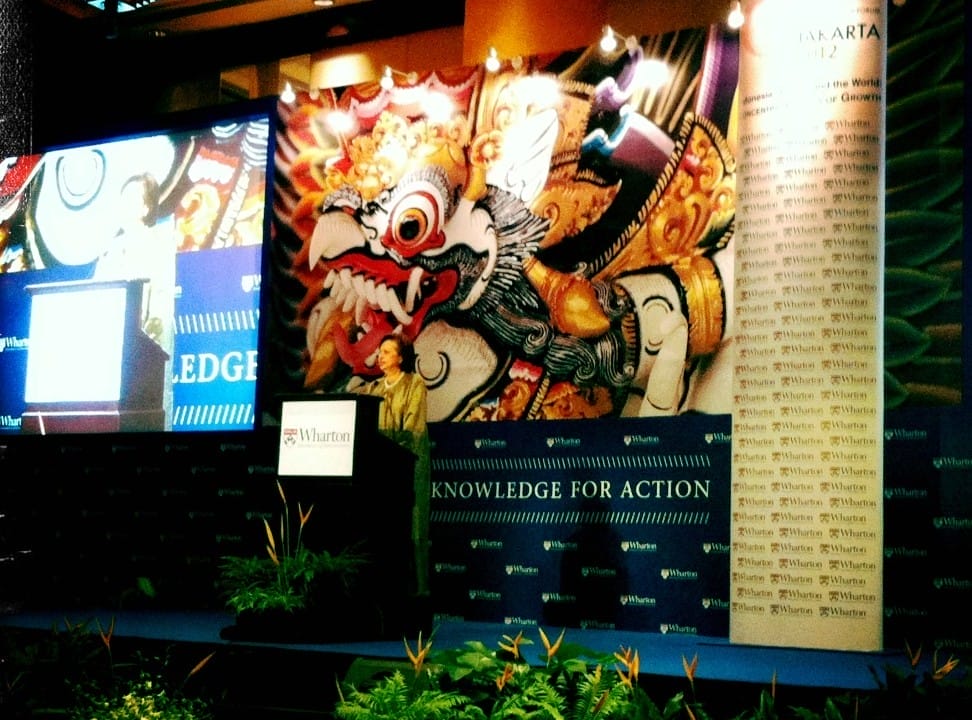Indonesia is an enormous country, with enormous potential, yet many business leaders are not fully aware of the impact Indonesia could have on the global economy.
The country of 240 million, after all, possesses the largest economy in Southeast Asia. The country’s GDP is growing at an unprecedented rate—6.5 percent in 2011 and forecasted at 6.1 percent for 2012. But is it sustainable?
With business leaders, researchers, faculty and graduates, the Wharton School explored the economic possibilities, as well as prospective challenges, faced by Indonesia and other Asian countries during its Global Alumni Forum in Jakarta, June 22-23.
The Forum was organized under the theme “Indonesia, ASEAN and the World: Concentric Circles of Growth” and featured a broad range of sessions covering such topics as telecommunications, sustainability, the hospitality industry, investment and private equity in emerging markets. Among the notable speakers were Dr. Boediono, GrW’79, vice president of the Republic of Indonesia; Jon M. Huntsman Jr., C’87, HON’10, former U.S. ambassador to the People’s Republic of China and former governor of Utah; and Tan Sri Dato’ Dr. Zeti Akhtar Aziz, G’74, GR’78 governor of the Central Bank of Malaysia. The aim was to increase attendees’ understanding of the Indonesian marketplace and the role that Southeast Asian economies play on the world stage.
During his keynote address, Dr. Boediono invited attendees to work more directly within Indonesia and share their knowledge and expertise. This type of international collaboration, he said, will help the country maintain its forward trajectory.
“We would like to extend our invitation to Wharton academics, students and alumni to take a more active role and work directly with our government to advise, coach, train and share knowledge with our public sector so that we can make better decisions for Indonesia’s future,” he said.
He noted that Indonesia’s size both accelerates and limits its prospects for growth. In particular, the country’s less than adequate infrastructure could slow its momentum.
“This is the most immediate, binding constraint to our growth,” he said.
“The success of the region is not only in the interest of the Asian economies, but the world,” Dr. Zeti said during her keynote address.
“While the region is affected by the ongoing economic and financial crisis originating from Europe and the United States, the Asia region continues to remain on a growth trajectory, although at a more modest level,” she noted.
The talks by Dr.Boediono and Dr. Zeti attracted Indonesian and international media coverage, including attention from the Jakarta Globe and the Business Times.
Knowledge@Wharton published a special report in anticipation of the Jakarta GAF. Download “Asia Grows, But Holds Its Breath” for the full report.

























